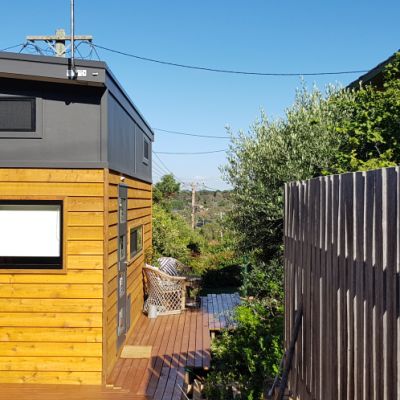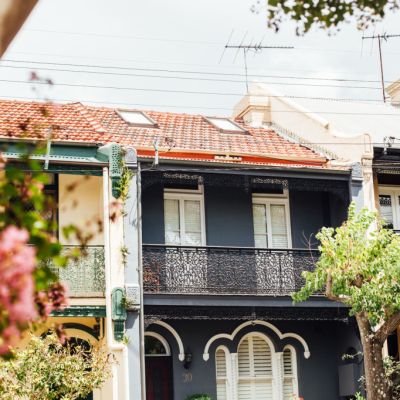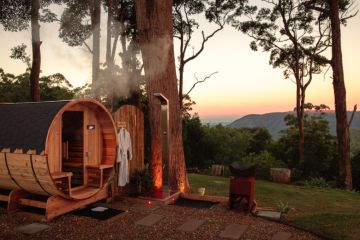Finding freedom in the unknown: Meet the young family who are professional nomads
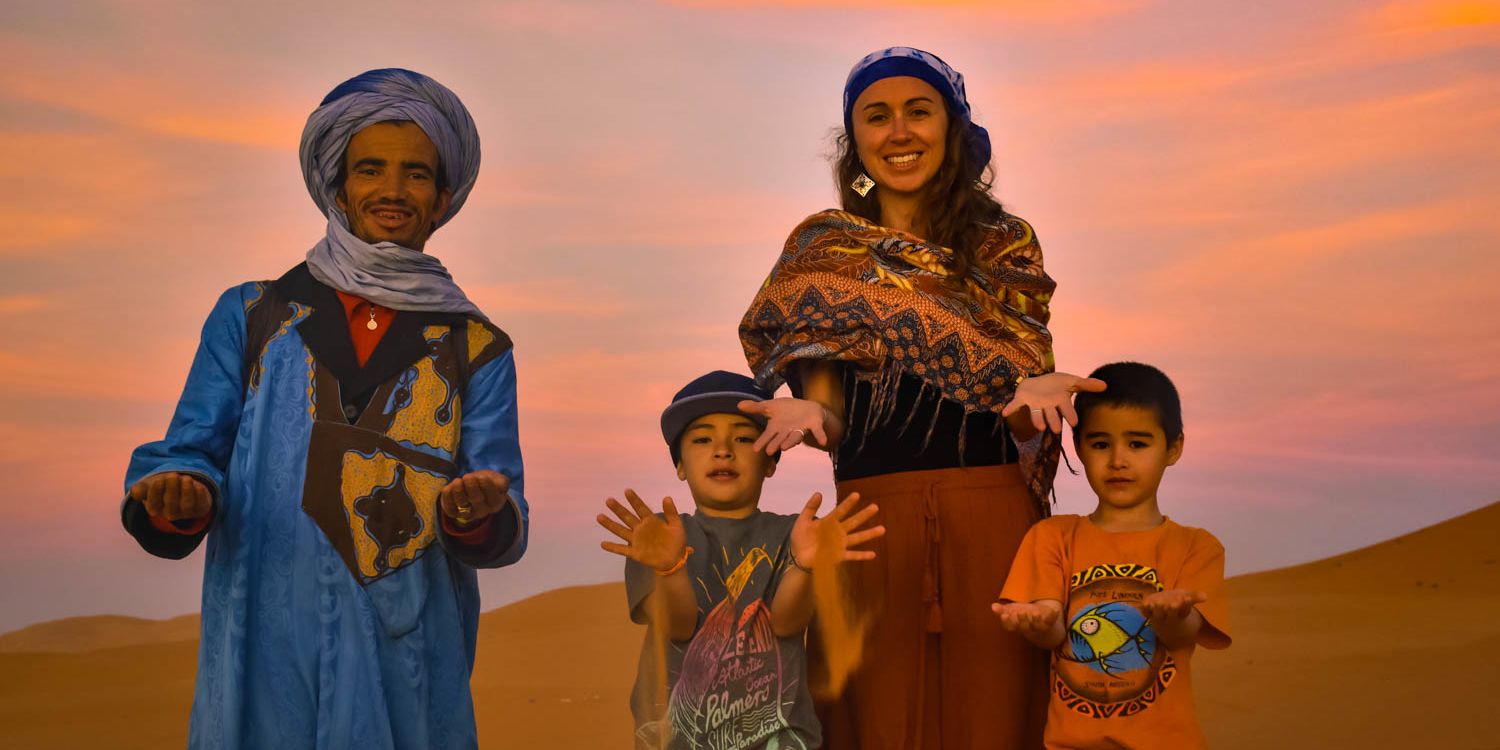
In 2016, Angie Davis found herself a single mother of two young boys aged three and five.
The financial and emotional burden was heavy and, struggling under the weight of domestic routine, she decided it was time to shake things up. This marked the beginning of a period of living nomadically across the world without a home and barely a possession to her name.
“Domestic life became an intense struggle, with no family close as I was living in Lennox Head and they are in South Australia,” Davis says of that time.
“I went and did my second Vipassana meditation course and came back with a clarity that I needed to sell everything, buy one-way tickets to Colombia, and find freedom in the unknown.”
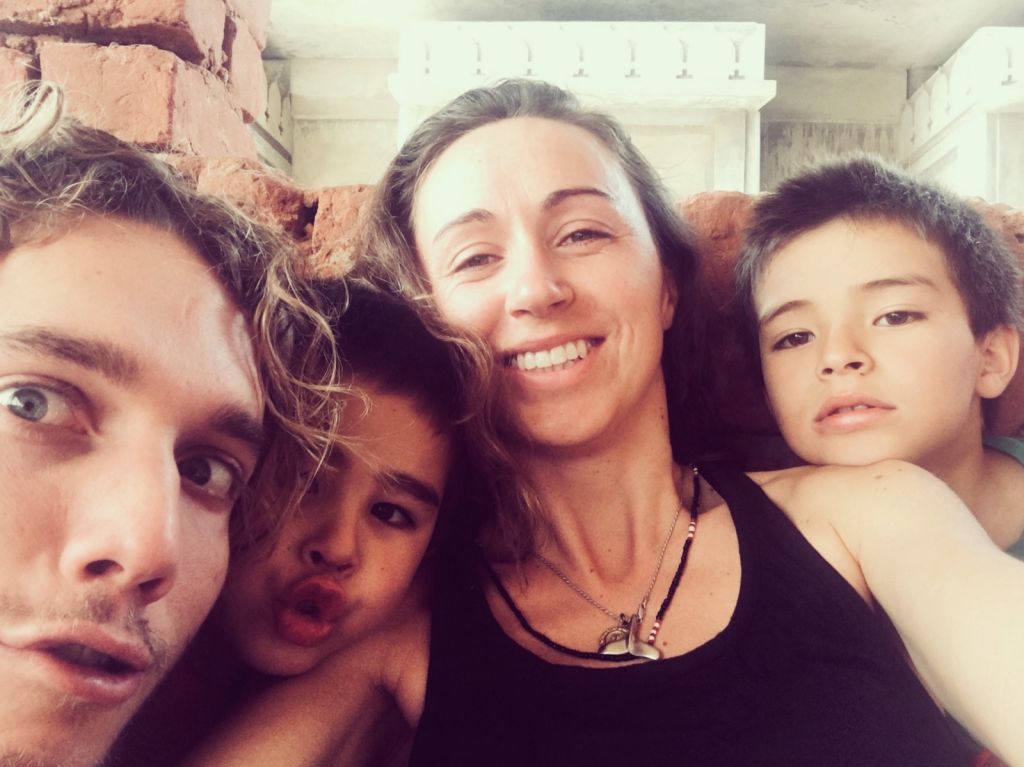
The past two years have been a whirlwind of trains and planes, culture and country for Davis and her two sons.
After three months in Colombia, the family spent three months in Japan, only to return to Australia for six months to camp in a tent.
After Australia came a trek from India to Nepal, with stops in China, Thailand and Japan in between. Soon after it was three months in Bali, three months in Montreal and three months in southwest France, followed by a brief period in Morocco.
At the end of 2018, the family made a quick trip to New York and headed back to the freezing temperatures of Montreal.
Now, in 2019, they have plans to go to California before visiting Byron Bay, Sydney and Adelaide to see family again while contemplating their next move. They house-hop, stay with friends and family, and various hotels and hostels.
With things always in flux, Davis says the past two years have taught her family how to always adapt to climate, culture and circumstances.
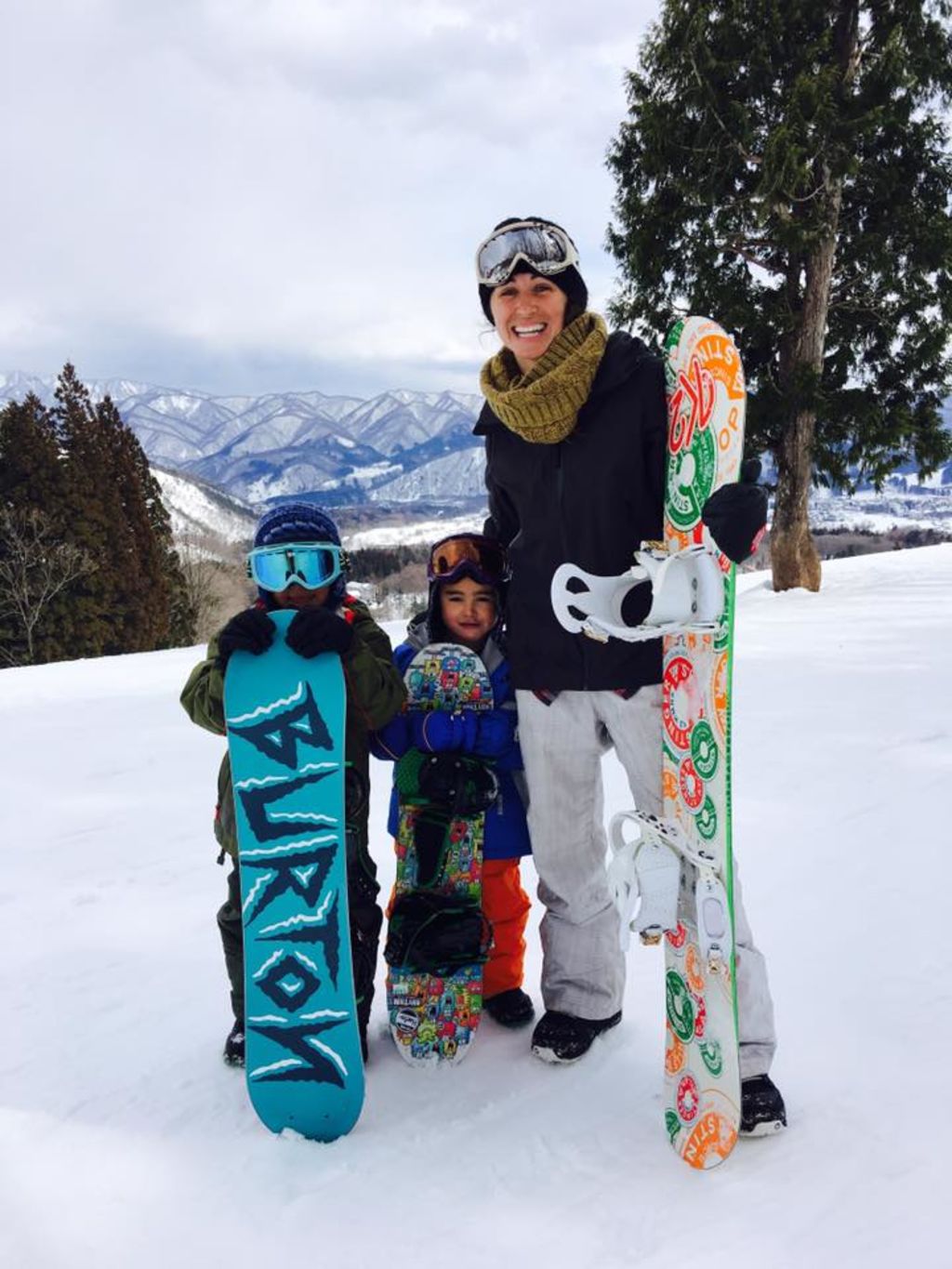
“We try to keep the mess of the outside world outside, and stay peaceful inside,” she says.
“I think the more we travel, the more we see the chaos of the world in which people live, and it pulls us toward living more and more simply. When we do finally ‘settle’, it’s going to be with a lot of clarity and no clutter.”
She believes feeling “displaced” has come with the benefit of realising what she wants from life; be it as a mother, partner or in her career.
“Borders are truly such an illusion,” she says. “People have been so kind to us all over the world. We have never been robbed or in any danger, never had anything stolen, and have never felt the need to be overprotective with the kids.”
Working as a photographer, documentary filmmaker and journalist, Davis’s work is “remote and extremely flexible”, while their two sons do a distance education program as they travel. Logistics, she concedes, can sometimes be non-existent.
“Logistics are a tough one for sure. When we are in one place, such as France, we try and dedicate two to three hours per morning of school work, but honestly some days it’s one hour and some days it’s none,” she says.
“Rather than stress too much over the bookwork, [my partner] Remy and I find ways to observe their learning skills in other aspects of life. They can speak a little French now and picked up some Spanish and so their brains are developing, just not in the traditional way of read and repeat.
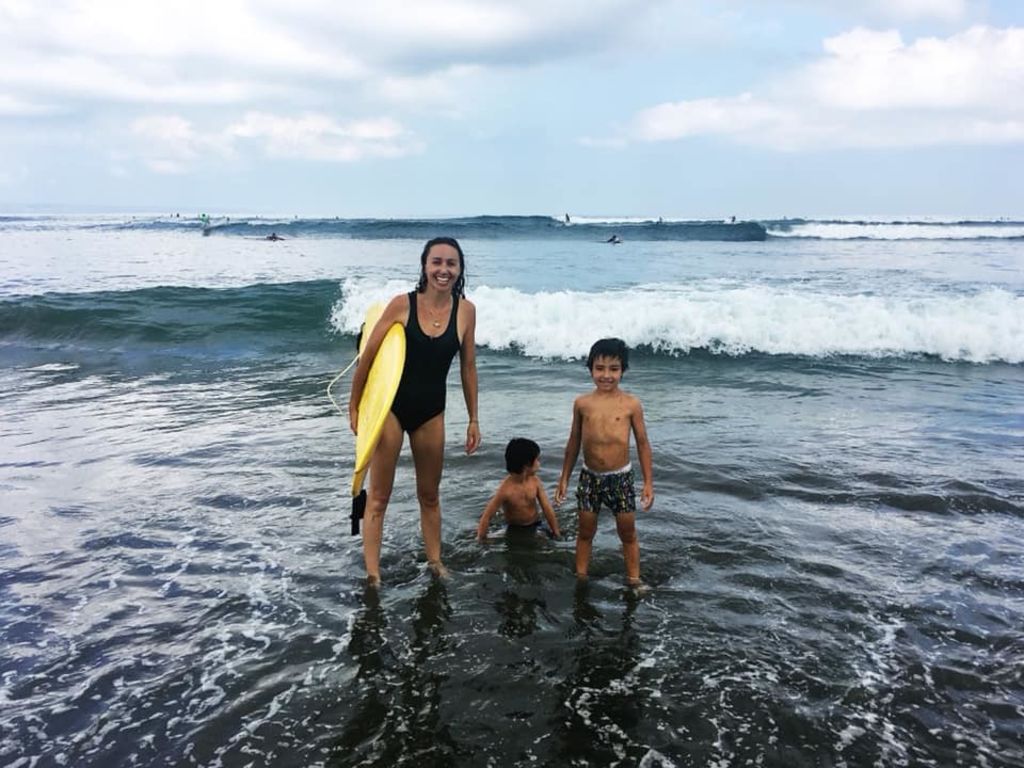
“Remy is always playing music around them, they know a lot of survival and life skills, and there’s nothing they can’t learn off YouTube.”
For Davis, living this way with her children is all about two things: creating little routines and big memories. She says organising some semblance of routine is crucial to their sanity and sense of normalcy while on the road.
“There’s this saying that routine is lethal. I would say complacency is lethal, but routine is good! No matter where we are in the world, we adapt to new little routines. For the past four months we have created a ‘morning pages’ ritual, where the kids have to write a full-page story every morning, and Remy and I also write in our journals,” she says.
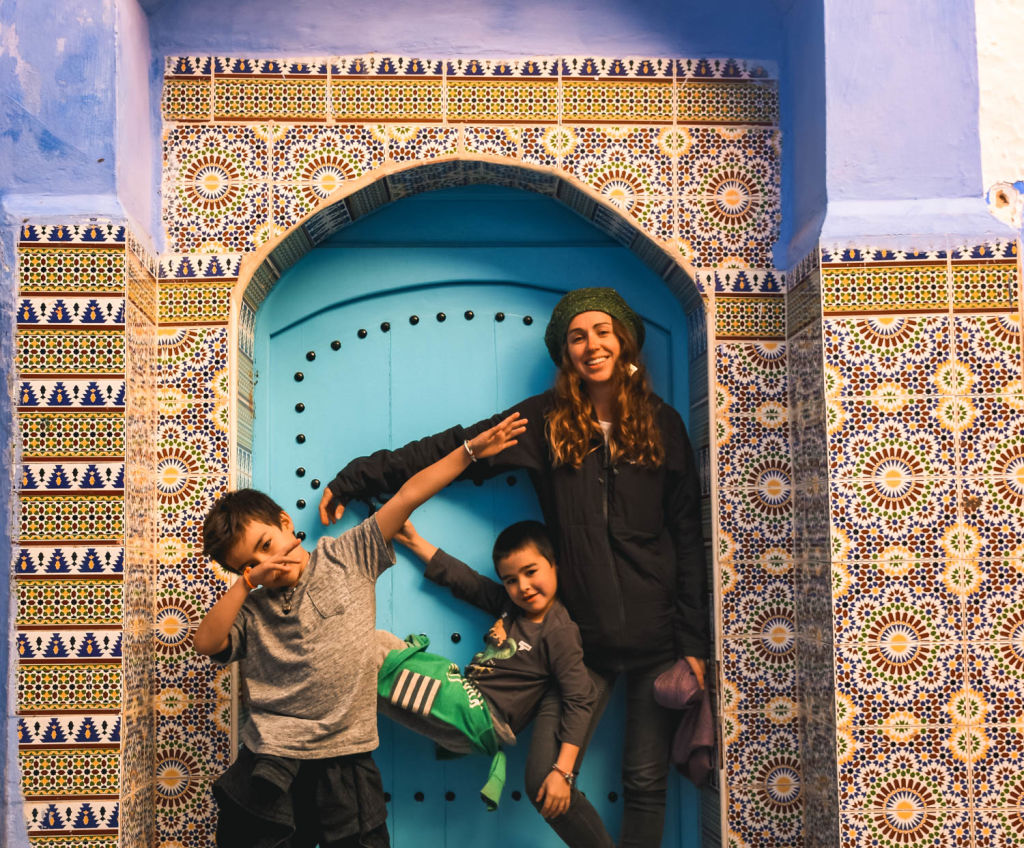
The mum-of-two says because the family is always on the move, they are “always being inspired by people and places”. She says the recent death of a family member has encouraged them to continue collecting the kinds of memories travelling affords.
“It makes you realise that at that time, on the last breath, you can’t take anything with you but memories. We like to call them ‘souvenirs’. They are not physical souvenirs, but rather the souvenirs are the experiences on our journey – people, landscapes, situations,” she says.
“When it all boils down to it, most people die full of regret. I want to live a life with no regrets and go to the grave knowing that I lived each day to its fullest. Most people, like I did before, just throw their kids into school and let teachers educate them. I’m throwing mine into unpredictable situations and observing how they adapt.”
We recommend
We thought you might like
States
Capital Cities
Capital Cities - Rentals
Popular Areas
Allhomes
More
